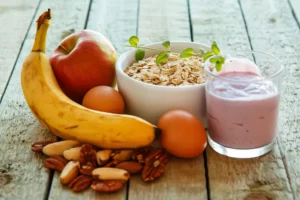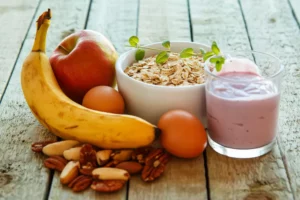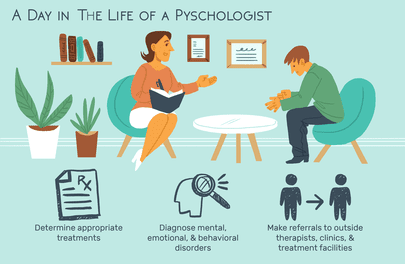A balanced diet supplies the nutrients your body needs to work effectively. Without balanced nutrition, your body is more prone to disease, infection, fatigue, and low performance. Children who don’t get enough healthy foods may face growth and developmental problems, poor academic performance, and frequent infections. In Pritish halder’s article you will learn about what you need for a balanced diet, why a balanced diet is so important, and tips for ensuring you meet your nutritional needs every day.
Why a balanced diet is important for our day-to-day lives?
You may be wondering a balanced diet is necessary .The simple answer is eating a healthy, balanced diet is a vital part of maintaining good health and helping you to feel your best. While some groups of people, such as athletes, may require additional support by way of the best protein powders and the best protein bars to fuel muscle growth, the majority of us can get everything we need by ensuring we’re eating a healthy and varied range of foods.

The core elements that make up a healthy dietary pattern include:
-Vegetables of all types – dark green; red and orange; beans, peas, and lentils; starchy; and other vegetables.
-Fruits, especially whole fruit (rather than fruit juices).
-Grains, at least half of which are whole grain.
-Dairy, including fat-free or low-fat milk, yogurt, and cheese, and/or lactose-free versions and fortified soy beverages and yogurt as alternatives.
-Protein foods, including lean meats, poultry, and eggs; seafood; beans, peas, and lentils; and nuts, seeds, and soy products.
-Oils, including vegetable oils and oils in food, such as seafood and nuts. Experts says variety is key when it comes to eating fruit and vegetables. “Go for at least five portions of fruit and vegetables a day,”. “Fresh, frozen, canned, and dried all count. Eating a diverse range of plant-based foods is great news for our gut health and microbiome which thrives best when we consume a wide variety – aiming for 30+ different plant-based foods a week is a great target.” The dietary guidelines also advise limiting foods and beverages higher in added sugars, saturated fat, and sodium and limiting alcoholic beverages.
Risk of nutrient deficiency
If your diet isn’t balanced and you consume foods that don’t provide enough nutritional value, your nutrient levels will start to decline. Research (opens in new tab) has found that 31% of the U.S. population is at risk of at least one vitamin deficiency. There are many dangers of a nutrient deficiency, including digestion problems, anemia, and skin problems.
Reduction of chronic disease
The foods we eat have a profound impact on physical and mental health. The scientific connection between food and health is well documented, with substantial evidence showing that following a healthy diet can help people achieve and maintain good health and reduce the risk of chronic diseases.

The recommended limits are:
Added sugars: Less than 10% of your calories per day.
Saturated fat: Less than 10% of your calories per day.
Sodium: Less than 2,300 milligrams per day (and even less for children younger than age 14).
Alcoholic beverages: Adults of legal drinking age can choose not to drink, or to drink in moderation by limiting intake to two drinks or less in a day for men and one drink or less in a day for women when alcohol is consumed. Drinking less is better for health than drinking more.
Relation between fitness and different frame of mind
Some evidence suggests a close relationship between diet and mood. In 2016, research published in the journal Appetite found that diets with a high glycemic load may trigger increased symptoms of depression and fatigue. Foods with a high glycemic load include many refined carbohydrates, often found in soft drinks, cakes, white bread, and biscuits. Vegetables, whole fruit, and whole grains have a lower glycaemia load.
Importance of Neurological health
A healthy diet may help maintain brain health too. A 2015 study published in the journal of Neurology, Psychiatry and Brain Research (opens in new tab) identified nutrients and foods that protect against cognitive decline and dementia. The researchers found the following beneficial – vitamin D, vitamin C, and vitamin E, omega-3 fatty acids, and fish.
TIPS FOR HAVING A BALANCED DIET EVERYDAY
A healthy diet will combine all the recommended nutrients and food groups mentioned, but you need to balance them too. The plate method is a handy way to remember how much of each food group to eat which recommends:
Filling half your plate with fruits and vegetables.
Providing over just one quarter with grains.
Having under one quarter with protein foods.
Adding dairy on the side (or a non-dairy replacement).

Nutritionists believes that proper balance comes when you view food on a spectrum, as labelling foods ‘good’ or ‘bad’ may lead to unhealthy restrictive habits. “It could be argued that a balanced diet includes healthy and occasional not-so-healthy foods is more important than aiming for perfection with all our food choices.
“Taking this approach allows individuals to fuel their bodies with healthy options but also provides a positive place for our mental health too. Having this kind of mindset prevents guilt that could be felt upon eating the occasional unhealthy food.”
References
https://www.livescience.com/why-a-balanced-diet-is-important
https://www.healthline.com/health/balanced-diet#importance












Reading your article helped me a lot and I agree with you. But I still have some doubts, can you clarify for me? I’ll keep an eye out for your answers.